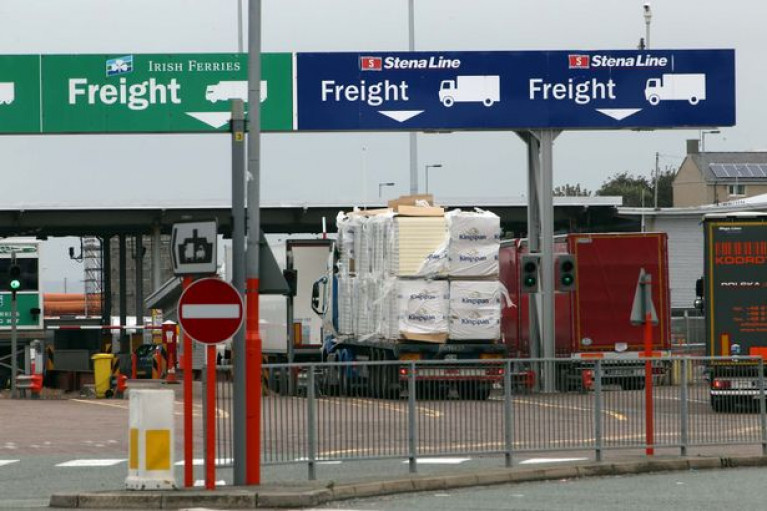Displaying items by tag: Mayhem: Holyhead
Hauliers Fear 'Mayhem' at Holyhead Port when Brexit Transition Ends
"Mayhem" at Holyhead port is what hauliers have claimed there will be when the Brexit transition period ends.
The north Wales ferryport is the second biggest "roll-on roll-off" port in the UK after Dover, carrying 1,200 lorries and trailers a day across the Irish Sea.
The Irish Road Haulage Association (IRHA) said the first six months of 2021 would be "terrible" as the port is not ready to cope with the change.
But the port's owner, Stena Line, has said the process would be smooth.
The IRHA remain unconvinced as the deadline to agree a new UK-EU deal approaches and the Brexit transition period ends on 31 December.
It is concerned border-ready pre-boarding IT systems have not been tested for outbound travel.
The European Union is planning to enforce border controls on the Irish side from 1 January but inbound lorries into Wales will not face any checks by UK authorities until July 2021.
For much more BBC News reports here.

























































